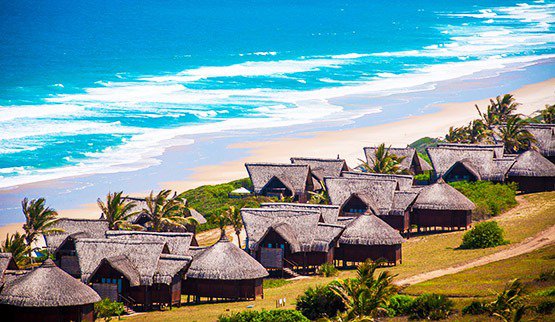Foreign operators are setting their sights on Mozambique; whilst the government welcomes the profits, will they be equipped to encourage sustainable business in the sector?
Earlier this year Mozambique’s government pushed through the Gaming and Gambling Law, which in addition to increasing the number of gaming licenses to be granted, reduced distance limits between casinos. The capital Maputo can now have up to four venues within a 100-metre radius, a move inspired by the thriving casino clusters on Macau’s Cotai strip.
Following its initial legislation of gambling in 1994, Mozambique has since made several policy changes to encourage growth in the sector as part of a bid to boost tourism, attract investors and ultimately kick-start its fledgling economy.
“I think the legislation needed to change in order for things to flourish,” said Jose Caldeira, senior partner at a leading Mozambique law firm. “Many people go to Swaziland and South Africa to gamble; we’re happy that people will be spending inside our borders, not out of them.”
Foreign investors en masse have shown interest in the local gaming sector, with South African based ACMS-Group running Mozambique’s ‘Nautilus’ casino, based in Nampula, as well as Rank Holdings Limited’s ‘Casino Marina’, which is part of Sri Lanka’s largest entertainment company. Both sites opened in late 2016 to a warm reception.
Meanwhile, South African hotel giant Tsogo Sun is opening a $17 million hotel development in Maputo, the country’s Portuguese styled capital.
“There is some indication the legislation will be changed, allowing more international operators to come here and invest,” said Caldeira, referencing the myriad ways Mozambique is adopting to accommodate new opportunities.
The Polana, the independent state's very first casino, opened doors in 1996. It’s the largest local brick-and-mortar operation in the country, boasting 120 gaming machines which spread across over 4,000 square feet. Local figures publicly endorse the casino as a safe (and swanky) form of entertainment. Indeed, the bulk of anti-gambling sentiment within Mozambique’s population is targeted towards the rapidly growing local betting industry, which is subject to haphazard regulation at best.
In contrast, the casinos are seen as a legitimate, secure entertainment source, situated near to high-class restaurants and hotels. Local reports indicate that a growing middle class of residents, as well as an influx of Chinese and Indian workers, has provided consistent revenue. Whilst sites located in beach-side towns such as Namaacha and Beira attract a steady stream of South African and Zimbabwean tourists — looking to take advantage of Mozambique’s white sand beaches and tropical reefs.
However, there are still key issues that the government must address to ensure sustainable growth in the sector. Like much of sub-saharan Africa, the country's relatively new entry into the casino sector means that there are few experienced staff available to man the venues.
“Operators tend to hire from abroad, particularly supervisors and managers, as it can be challenging to train people,” commented Caldeira.
The bulk of these workers are from nearby South Africa and it is hoped that a more liberal approach to hiring foreigners will be implemented within the government, as these skilled staff are necessary to set high standards of operation on the casino floors. The potential for local work within the casinos is also huge, with one venue hiring 200 local staff from the outset.
“Another issue is the bureaucracy surrounding the process. It can take months and months to get a license,” continued Caldeira. This is partly due to Mozambique being in the early stages of establishing a modern legislative framework, in the wake of terrible upheaval during the last few decades.
Furthermore, a lack of manufacturing capacity means that Mozambique relies on imported machines, predominantly from China.
“Absolutely all of our machines are imported,” stated Caldeira. “There are extensive import duties involved, adding more to expenses on the operator side.” It is likely that these taxes and any existing red-tape will need to be reduced, or mutually beneficial deals made between the operators and foreign manufacturers.
With the government proving flexible in its approach to attract commerce, growth here is happening slowly but surely. For example, part of Mozambique’s 2009 Gambling Act lowered the upfront deposit required for a new casino site from $15 million to $8 million.
“Gambling is a good source of income for the government, provided that due enforcement of law is carried out, and that the legislation protects those who are vulnerable,” concluded Caldeira.
Problem gambling is rampant in Mozambique’s unregulated betting sector — particularly among children — the negative effects of which may smear the gaming industry as a whole. In order for Mozambique’s new casinos to thrive it is crucial the entire industry establishes effective measures to tackle problem gambling and provide help for those impacted.
Not only must the government establish a well-defined policy framework supported by clear legislation, they must also ensure that existing institutions, such as the police and regulatory boards, have the resources to implement and enforce the new laws. Maintaining a modern infrastructure that allows both local and foreign business to operate unfettered by bureaucratic stalling will also be key, whilst due attention will need to be paid to pervading cultural influences to ensure that local attitudes remain positive toward the gaming sector as a whole.

